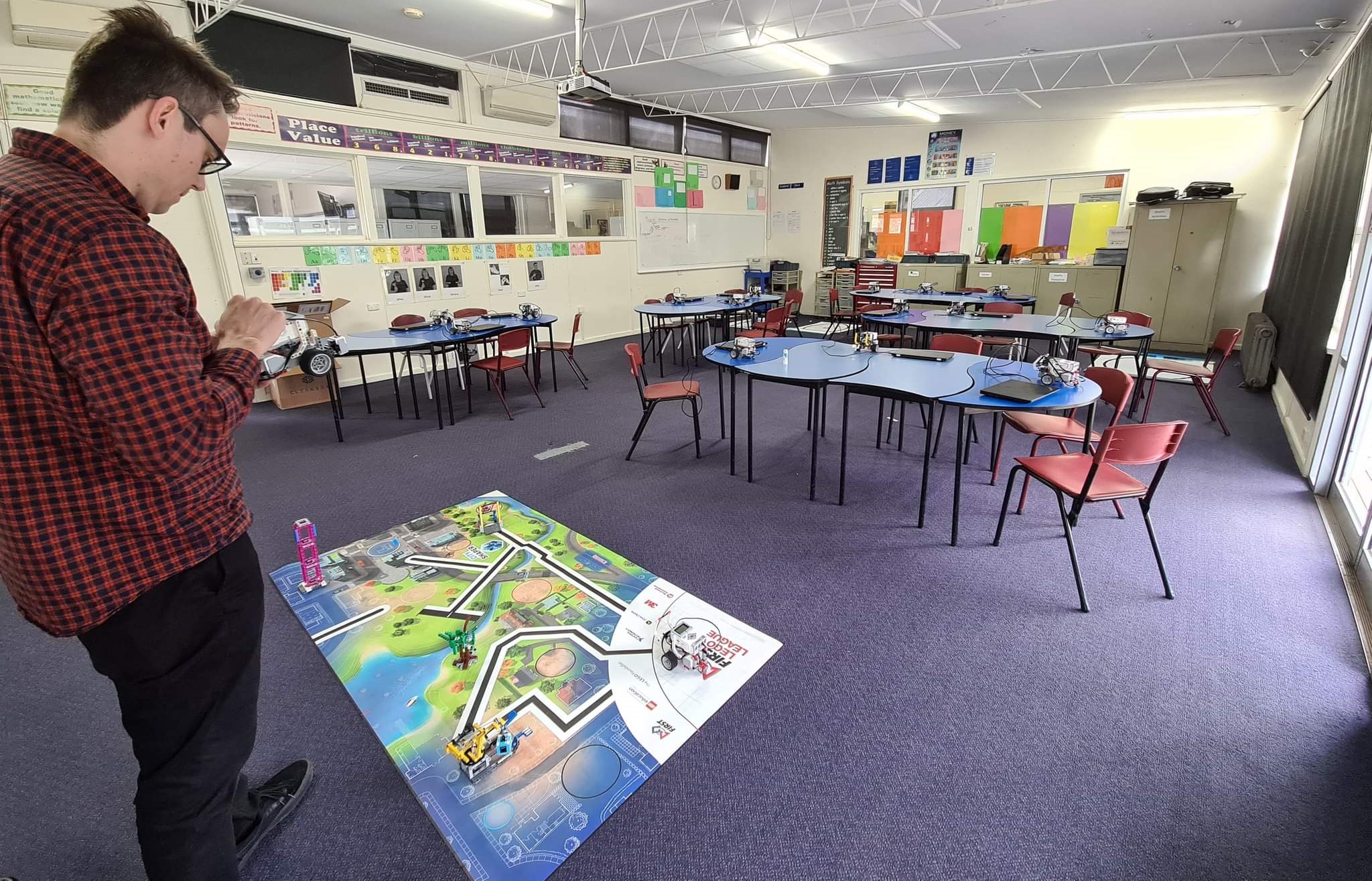STEM program inspires rural students

Students from rural schools such as Nathalia Secondary College are able to use innovative technology through KIOSC’s interactive STEM activities
In summary
- Swinburne’s Knox Innovation, Opportunity and Sustainability Centre (KIOSC) has received government funding for their Inspire Program
- The KIOSC Inspire Program provides STEM educational experiences to rural students as well as career support services
- The program includes technology-based experiences for real world settings in farming, communities and design
Swinburne’s Knox Innovation, Opportunity and Sustainability Centre (KIOSC) has launched its Inspire Program as part of the Victorian Government’s investment to help raise rural students’ understanding and confidence in pursuing STEM related tertiary education.
The KIOSC Inspire Program gives rural students the opportunity to experience new and emerging technologies in their own environment through interactive STEM activities. It helps broaden career pathways available and enables them to make an informed decision on their future careers through career clubs and discovery sessions.
To help ignite interest in STEM among her students, Principal of Nathalia Secondary College, Helen Ginnivan, invited KIOSC to deliver the Drone and Robotics Program. Students were taught how to control drones and prototype programming codes, which she says created dialogue full of inquiry and problem solving.
‘The students really enjoyed the practical component flying the drones and managing the challenges they were set in a team.’
The experiences are designed to focus on concepts and issues relevant students in rural areas. Through technology, students explore innovative solutions to problems that will open their minds to exciting career possibilities.
The KIOSC Inspire Program is made up of three main educational experiences that can be selected:
- Smart Farms: exploring the use and benefits of technology in farming.
- Smart Communities: discovering how technology can connect people and communities.
- Smart Design and Manufacturing: Bringing entrepreneurial and enterprising ideas to life through 3D design and production.

In their own school environment, rural students can experience new and emerging technologies, encouraging and supporting them to broaden their career pathways
Technology inspires
KIOSC Systems Coordinator, Brendan Kroon, is the equipment lead of the program and helps educators by managing and maintaining the relevant software. Mr Kroon enjoys travelling to rural schools and engaging with the students through delivering the program.
‘Technology is the core of the program. As we showcase the latest tech to the students and demonstrate how they can use it in their local communities, we teach them new vital skills (such as programming) that may be beneficial to them in the future.’
Mr Kroon says that though COVID-19 has limited KIOSC’s ability to travel to rural schools, they continue to engage students online and are excited to deliver the program in person as soon as they can.
‘The benefit of this is that the students get a hands-on experience that the schools are unable to provide. The teachers are also upskilled on how they can take this program further for the benefit of their students.’
-
Media Enquiries
Related articles
-

- Education
Bringing transformative education down under
The Transformative Education for Sustainable Social Impact (TESSI) Institute is coming to Australia for the first time this December. Swinburne School of Business, Law and Entrepreneurship is hosting the event in close collaboration with the institute's founder Khanjan Mehta
Wednesday 11 September 2024 -

- Technology
- Business
Seven Swinburne startups to watch in 2024
Swinburne University of Technology’s Innovation Studio has unveiled its latest group of early-stage startups.
Friday 06 September 2024 -

- Science
- Sustainability
Green steel revolution: How Swinburne researchers are shifting steel manufacturing towards net zero emissions
Swinburne is developing new methods to minimise the environmental footprint of one of the world’s most widely used metals.
Friday 20 September 2024 -

- Design
- Technology
Swinburne supports Acusensus to develop innovative road worker safety device
Swinburne University of Technology's Centre for Design Innovation is supporting Acusensus to enhance the safety of roadside workers and first responders through research and design of advanced technology.Friday 02 August 2024 -

- Astronomy
- Science
Swinburne-led fungi experiment blasts off to the International Space Station
An experiment developed by Swinburne has been launched into space, containing three types of fungi: Lion’s Mane, Turkey’s Tail, and Cordyceps.Monday 05 August 2024

